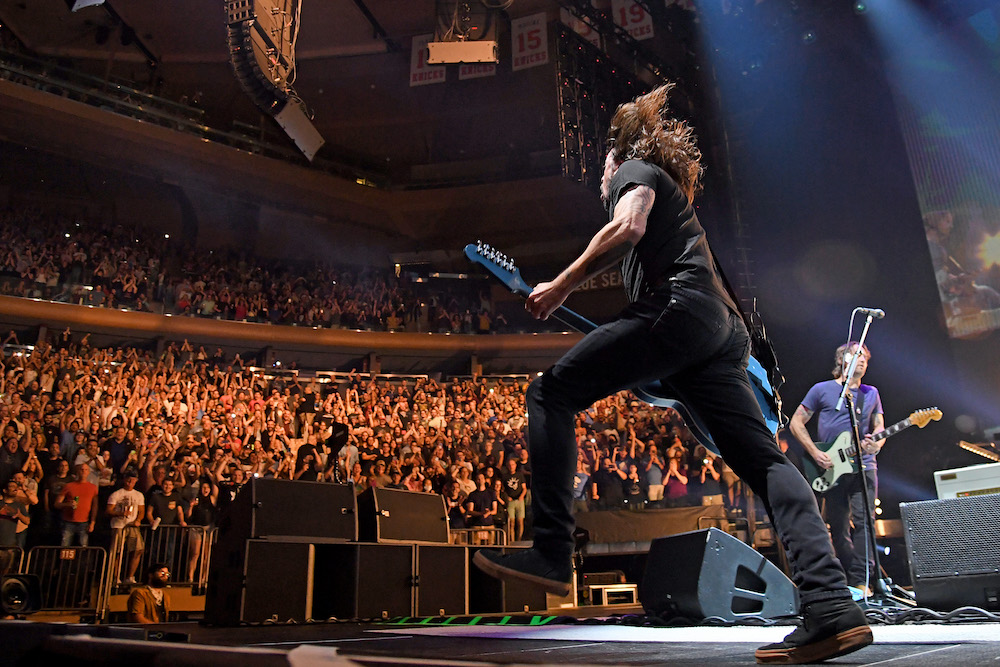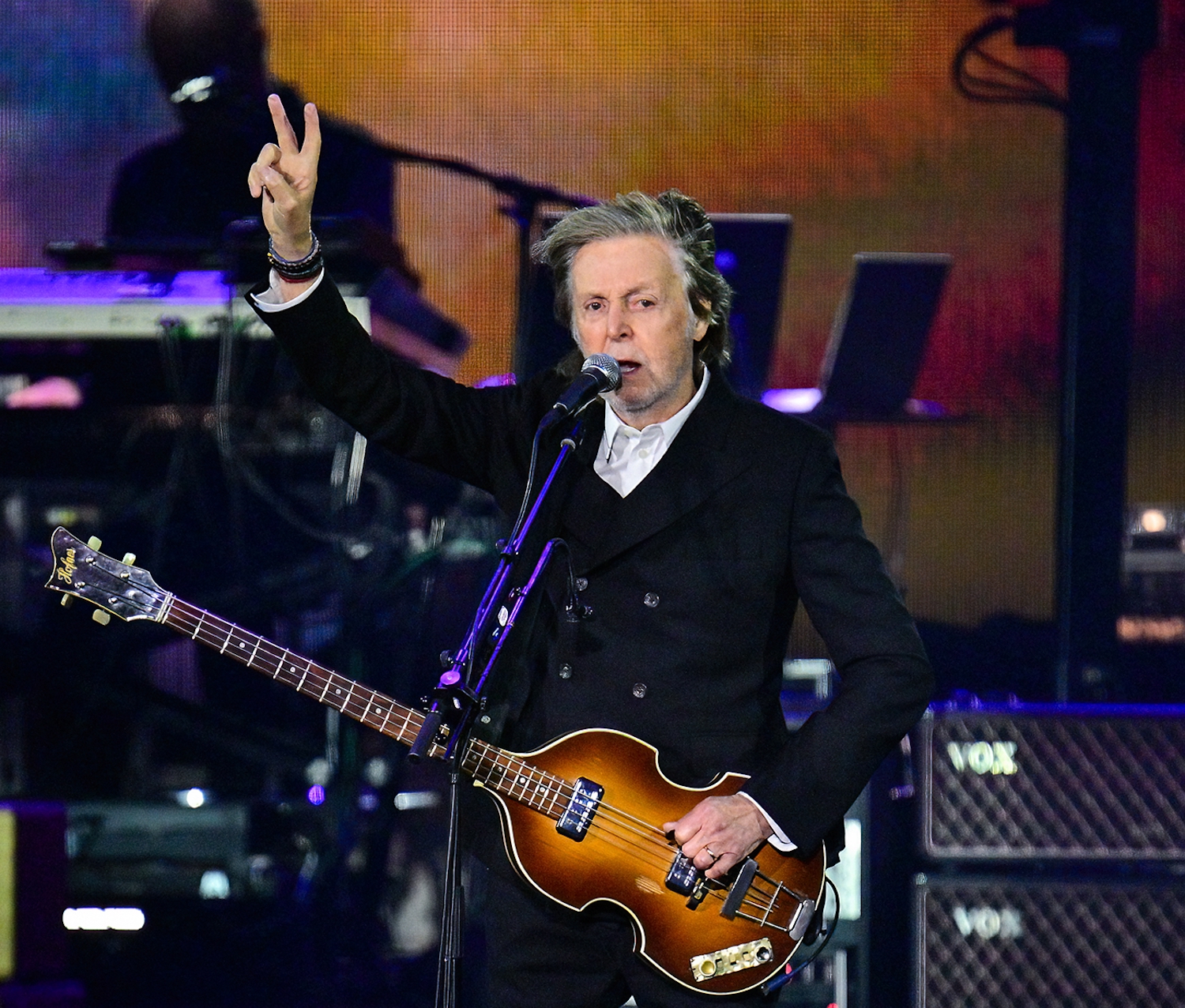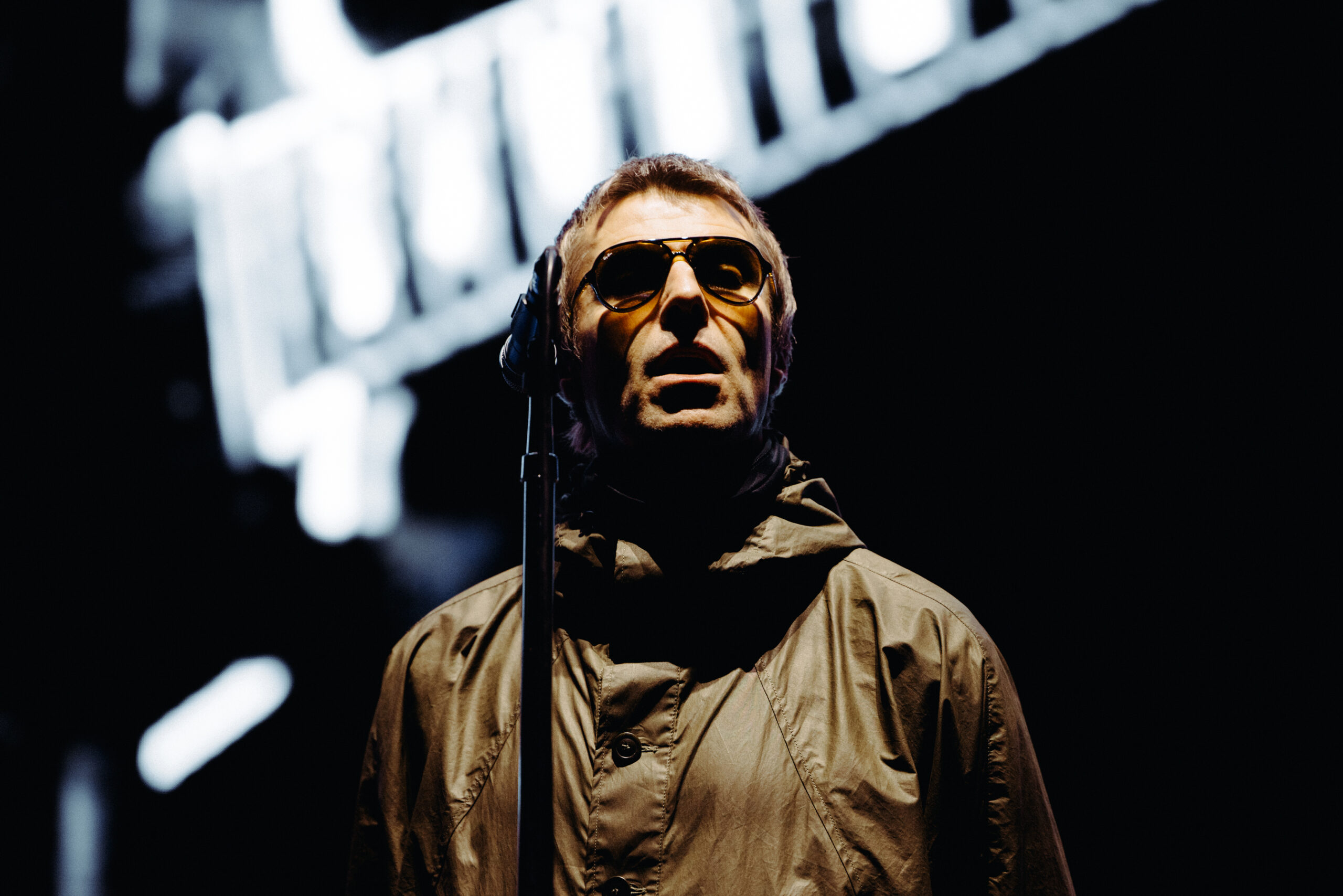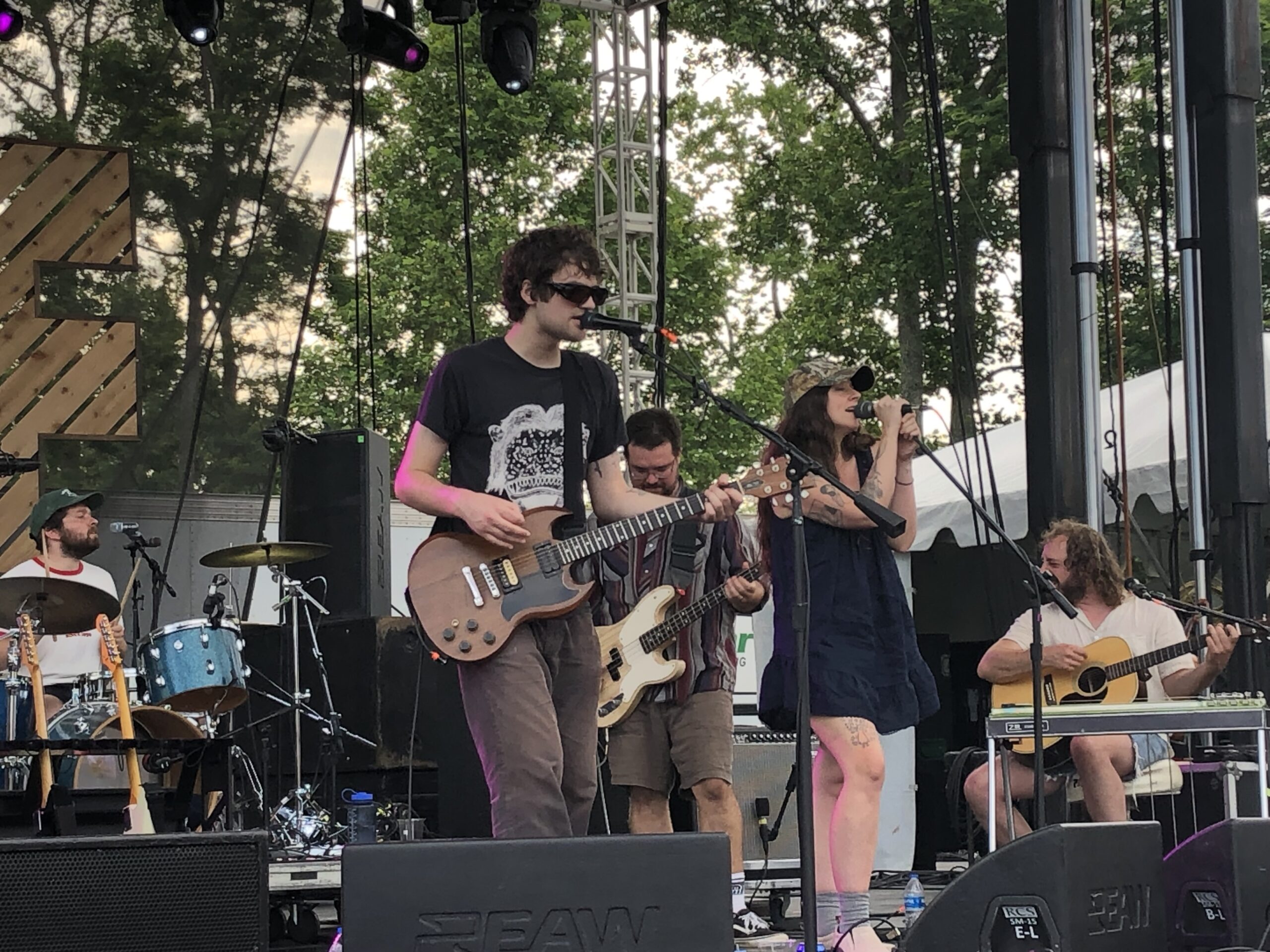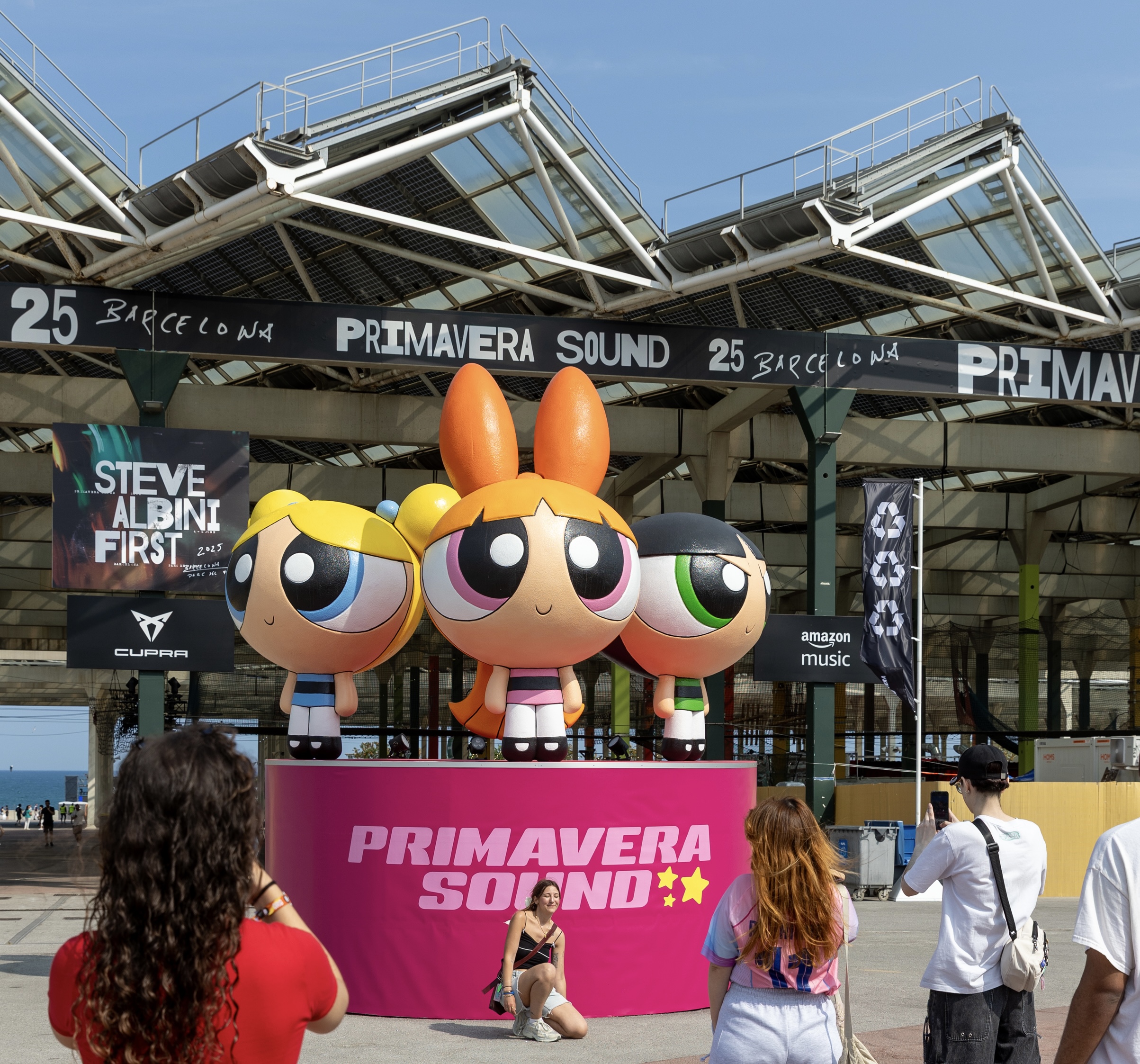For a long time, I assumed my first show back would be a compromise. Last year, when we had less understanding of the mechanics of the pandemic, I imagined shows returning in the summer, and then downgraded my expectations to a half-full room, people siloed and still masked up. I figured I might wind up at some socially distanced sit-down performance at a cafe or brewery or whatever, or that I might find myself at an outdoor show so laden with COVID precautions that, to me anyway, it'd feel like an awkward facsimile of real life the same way Zoom happy hours quickly became in April of 2020. As we got into 2021 and a bit more optimism crept into my life, I pictured a sentimental overload as me and 50 or 100 other people got together to watch some friends play in Brooklyn, down the line in August or September when -- this time, surely -- all the little clubs around New York could reopen in earnest. All of which is to say: Nothing prepared me for the fact that the first concert I’d see in 15 months would be Foo Fighters playing a full-capacity Madison Square Garden.
I spent a lot of the last year and change compartmentalizing the lack of shows. I could live with the moments where it was possible to see friends and family again, when you could tentatively travel around the States. After spending most of the last 10 years going to multiple shows a week, I just had to not allow myself to miss a thing that wasn't coming back as soon as I'd expected. Foo Fighters announced they'd be playing the first post-pandemic concert at Madison Square Garden a mere 12 days before the show, and about a week before our governor declared New York had beaten the virus. There was little time to prepare for this new reality. Normal life, after returning in fits and spurts, was rushing back.
Everything about approaching Madison Square Garden felt surreal. Two big screens outside said "Rock & Roll Returns To The Garden Tonight" and "Are You Ready?" (Below, a small scattering of people picketed in protest of the concert’s vaccination requirement, as they did at the Foos’ warm-up show in California last week.) Everything that should feel banal and annoying about an arena show somehow felt magical: Walking into the front doors to get through security was enough to bring a tear to your eye, and everyone in the crush of the crowd trying to get to their seats was cheering and talking to each other. One woman hip-checked and me said, "Boop! I just wanted to say hello," before explaining she was so damn excited tonight that she was "even talking to cops now!" When I found my way to my seat, I sat dazed just by being in a such a gigantic cavern of a room, watching 20,000 people fill in the expanse around me. In the very beginning, it was almost like I’d never been to a concert before.
I have seen Paul McCartney play in a 1,200-capacity room, and I have seen Kendrick Lamar play to a 650-capacity room. I've seen people worship at the altar of a Bruce Springsteen show, whether in a theater or a stadium. I have seen Kanye and Drake and Lorde and countless other superstars conquer festival fields. I’ve heard a lot of crowds lose their minds. But I don’t think I’ve ever heard something quite like the sound when the lights went down and Foo Fighters were about to walk onstage last night. (It was 8:15PM, which means they were gearing up for a nearly three hour show.) The sheer timbre of the excitement -- it was all the pent-up energy from the last 15 months, unbridled joy, shock, disbelief, all mingling together. It was really happening again.
The overriding surreal quality of the night was not lost on the band. Soon enough, Dave Grohl began addressing the crowd here and there. All variations on: Can you believe we’re back, we’ve waited so long, we missed this so much, we really gotta do this again sometime. But in the beginning, Foo Fighters opted for a quiet-then-triumphant reintroduction. The show opened with just Grohl and keyboardist Rami Jaffee, offering the more reflective toned-down live iteration of "Times Like These." The first time he sang, "It’s time’s like these you learn to live again," everyone screamed and it almost stopped him in his tracks. (This happened a few other times through the show, another including the "This could take all night" line in "Learn To Fly.") Eventually the band kicked in, and as the ending of "Times Like These" cascaded around the room, it was clear they were already tapping into a catharsis well beyond that of a normal arena show in the before times.
In so many ways, Dave Grohl and Foo Fighters overall are perfect candidates for a night like this. Here you have one of rock music's affable true believers, leading a band that is slick and professional and has more hits and/or fan favorites that they can fit into a set. "Times Like These" kicked off a powerful opening run, going into "The Pretender" and then "Learn To Fly." From there, the night featured several songs from their new album Medicine At Midnight alongside the singles and peaks of the past 26 years of Foo Fighters: "Monkey Wrench" and "My Hero," "Run" and "These Days," "All My Life" and "Breakout," a gorgeous, spectral “Aurora” and a gleefully unhinged "This Is A Call."
Now, three hours is a long time even if you haven’t seen a concert in 15 months. That initial overwhelming "holy shit" swell of emotion couldn’t necessarily be maintained through every second of the show, but the Foos also had some tricks up their sleeves. Just when you started to settle back into it all, become accustomed to standing at your seat through a long arena show after all this time, they did something that felt like reality was bending back in on itself again. For example: Grohl might talk about all the other Daves he knows and get you thinking what musician he’s going to invite onstage, before in fact bringing out Dave Chapelle to sing "Creep." (I know Chapelle has done this before, but it was still one of the most surprising concert guests I’ve ever seen.) And while the band may have already announced their Record Store Day Bee Gees tribute as the Dee Gees, you are still not prepared for Foo Fighters abandoning their power chords and anthemic choruses for "You Should Be Dancing."
Foo Fighters have always had a quirky sense of humor, and those moments fell right in line with some of Grohl's banter and mugging. (During the encore break, they had a live camera feed of him and Taylor Hawkins backstage, "negotiating" the amount of songs that would be played in the encore as Hawkins kept offering the crowd more.) But Grohl is also one of our most deeply earnest rockstars, and that, too, made him the kind of guy you wanted to see in this moment. (Yes sometimes it can be cheesy, but that is immediately forgiven in a context like this.) During the main set closer "Best Of You," as a packed MSG sang the big "whoa-oh-oh" refrain back at him as the band quieted down, Grohl laughed to himself for a moment. Then he had something to say to the crowd:
"I'll tell you something. Last year, I had this recurring dream. I would fucking walk onstage, and we would look at each other for the first time, and it would take a couple minutes. We’d just look at each other like, 'Thank God we got here tonight.' I fucking walk out onstage tonight, and it was just like that fucking dream. Thank you very much everybody for making my dream come true tonight."
A few minutes later, Foo Fighters would be closing the show with "Everlong," now restored to its rushing, full-power version, as "Times Like These" and "My Hero" are the old hits given the quiet-now-full-band treatment. "Everlong" is built for large-scale concerts. The inevitability of it, the release of it, the fact it's the signature song from a rock institution. The wistfulness of "If everything could ever feel this real forever/ If anything could ever be this good again" always felt climactic at the end of a normal Foos show or a fest headlining set. Last night, it hit in a whole different way.
People used to talk about how much they heard sirens during the early days of the pandemic, when New York was an epicenter beset by news that only seemed to get more dire. I don't remember that, even though I lived near a hospital. I remember silence. I remember afternoon walks on days that seemed to exist only in grey, without the sun ever fully rising. I would see maybe one or two other people outside, and we'd cross the street to avoid each other. There were no crowds spilling out of bars, no cars driving by with block-reverberating bass or impatient honks. There was no music drifting out of storefronts, there were no families sitting on the sidewalk barbecuing. It was a haunting quiet I had never before experienced in this city.
Last night, I was surrounded by thousands of people leaving Madison Square Garden, randomly starting up the "Best Of You" chant again and again. There was the aimless chatter about how we were all getting home, about the show, all the ambient chaos I was always so used to. There was a ringing in my ears I, at some point, thought I might never experience again. And there were a whole lot of people repeating the words that seemed to define the whole night, everyone's first big bombastic emotive rock show on the other side of a world-stopping experience none of us ever thought we’d have: "We made it."
https://youtube.com/watch?v=aoWmrYiGTOM
